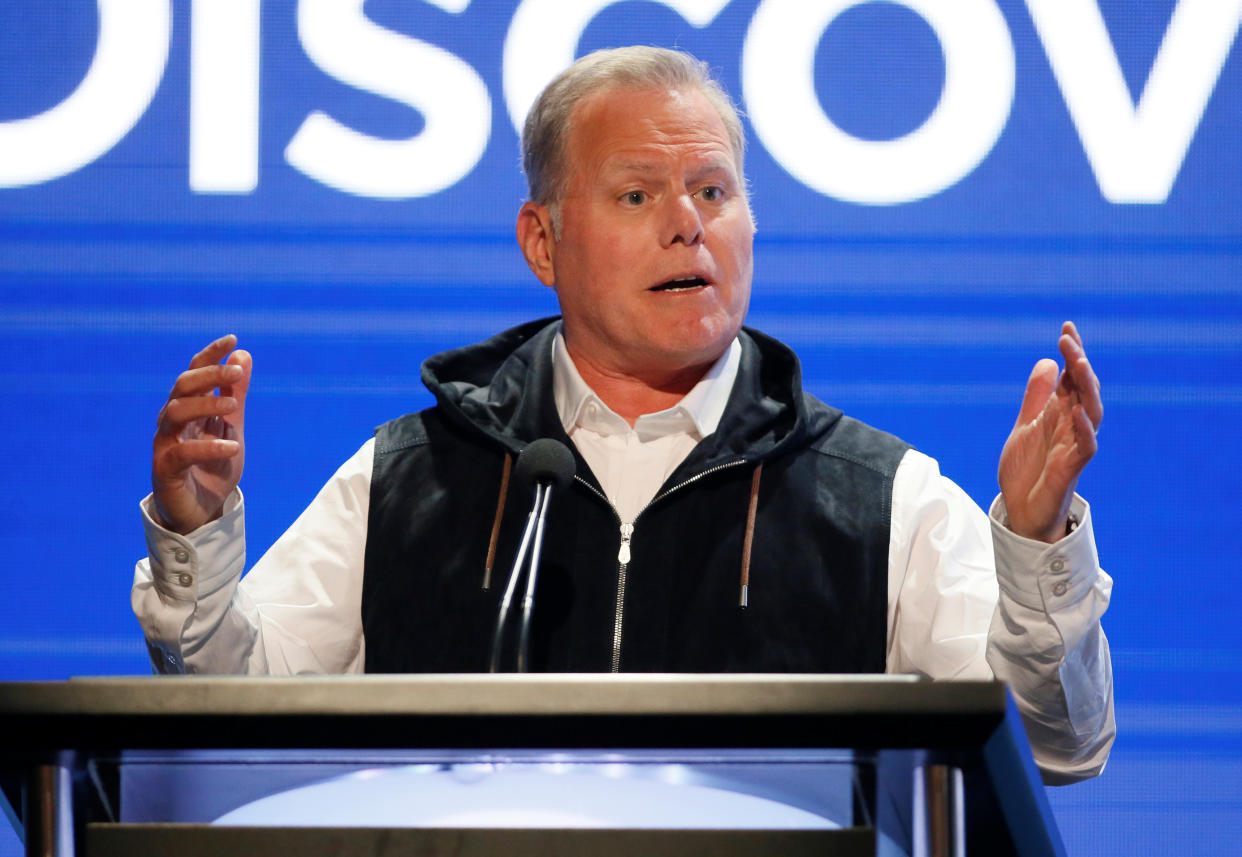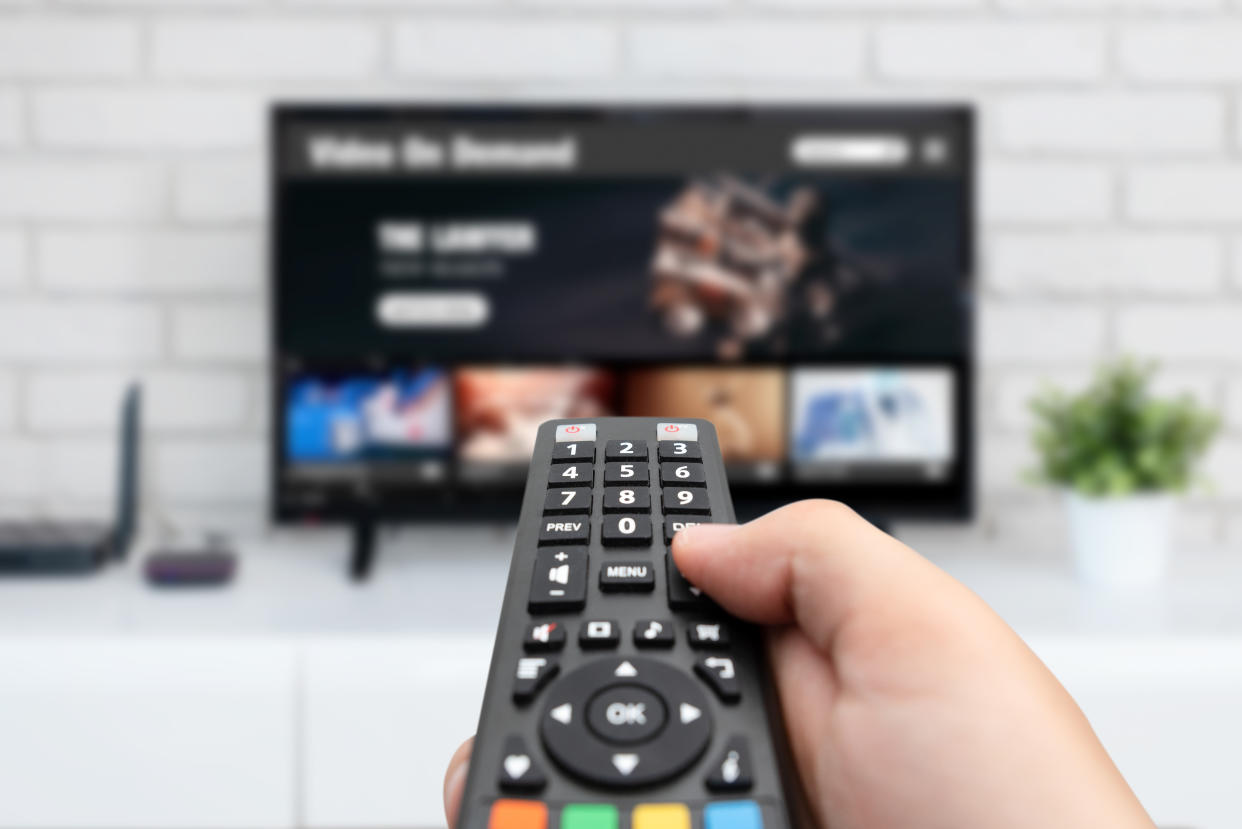CNN+ debacle shows why cable companies struggle with streaming
The demise of CNN+ has led to further questions about the role of cable companies in the streaming era.
The soon-to-vanish platform, once hailed as one of the most significant launches in the legacy media business, will shut down on April 30 — just one month after its launch.
The news arrived shortly after David Zaslav's takeover, with the newly formed Warner Bros. Discovery (WBD) making it abundantly clear that the venture's reported four-year budget of $1 billion was not worth the cost.
So why do cable companies struggle to stream?

The pandemic, which accelerated the shift away from linear TV, allowed content on streaming platforms to shine as more users cut the cord and subscribed to a variety of services.
It also caught the attention of Hollywood, which had been largely resistant to the streaming movement.
Over the past several years, streaming giants from Netflix (NFLX) to Apple TV+ (AAPL) received both praise and prominent awards, cleaning up at high-profile events from the Emmys to the Oscars.
"We're seeing these streaming services beat their own content drums at an increasing rate," Anthony Palomba, professor of business administration at UVA’s Darden School of Business, told Yahoo Finance.
"Consumers' awareness of shows is scattered even more, and people are more inclined to find new, interesting, provocative and unique content on streaming services," he continued, adding that "cablers are limited to the kinds of content that they can put on as they're often at the mercy of advertisers."
Palomba, who specializes in entertainment consumer behavior, went on to explain that TV viewership drives ad spend, which continues to be an important — and money-making — element for traditional broadcasters.
Because of that, he said, "There's a similarity across a lot of content [on cable] because of risk."
I don't think CNN+ had an identity. I think they were just hoping to catch audience members...Anthony Palomba, professor of business administration at UVA’s Darden School of Business
Coupled with content headwinds are various restrictions from cable operators, which make it nearly impossible for pure play media companies to host the same programming on a streaming service.
"In order to get me to keep paying for a cable subscription, there has to be the expectation of exclusivity that I'm receiving as a result," Palomba explained, telling Yahoo Finance that if similar content is "available elsewhere, cable operators would be forced into a price war with some other competing industry."
The professor added that "the idea of going to a bundled service becomes less and less attractive for audience members" if the same content is located on a one-off streaming platform. He called it a "nightmare" scenario for TV services who are "scrambling to figure out where their place is in this new universe."
Consequently, CNN+ would have been in breach of contract had it hosted the same, breaking news-style programming that the CNN network is known for, thus forcing the streamer to pivot and include more lifestyle content like a parenting show hosted by Anderson Cooper.
"CNN+ didn't really market themselves as having a robust catalogue of content, nuanced enough to ask people to migrate over there," Palomba said, noting that the muddled, off-brand messaging was likely confusing to viewers.
"I don't think CNN+ had an identity. I think they were just hoping to catch audience members," he stated.
Other legacy cable giants, like NBC (CMCSA), have also struggled to air content on streaming services. Last summer, customers grew increasingly frustrated over the limited options to stream the Tokyo Olympics on NBC's fledging streaming service, Peacock.
In fact, customers who signed up for Peacock still needed to have some sort of a TV subscription in order to stream all of the events that were offered on both the NBC Sports app and its Olympics website. Only a select number of events were available on the Peacock platform, and most were not even live.
"At the end of the day the Olympics are a made-for-TV event and we are in a post-TV world," Craig Moffett, media analyst at MoffettNathanson, said in a note at the time.
Peacock's restricted coverage was likely due to NBC's lucrative and longstanding deals with cable operators that, similar to CNN, place severe limitations on highly sought-after programming in order to preserve and protect it. Simply put, placing all of the Olympics coverage on Peacock likely would have breached those contracts.
But why worry about cable restrictions at all when the future is streaming? Well, not quite for everybody.
"A lot of these cable channels have baggage, advertisers, old business models, and it's kind of terrifying to completely pull the plug and say, 'Okay, we're going streaming and we're going to see how this works,'" Palomba said, explaining that cable still trumps streaming for most traditional networks.
Raj Venkatesan, a professor at UVA Darden who focuses on digital trends, agreed that streaming represents "high risk, high reward. Whereas, in the traditional channels, there is low risk, but also low reward and low growth."
"That's the challenge of transitioning and building new capabilities within your organization...Cable is a guarantee with a proven business model," the professor continued, explaining the stark contrasts in business-to-business relationships versus direct-to-consumer.

'Brand awareness'
Additionally, "audiences have been a problem for cable channels. The younger they go, the more inclined they are to stream and seek out new and fresh content," Palomba said, although recent surveys suggest more and more older generations are turning to streaming to fill cable's content gap.
According to a study from Ampere Analysis conducted during the third quarter of 2021, global monthly usage by Netflix users over the age of 45 climbed 22% over the last two years versus a growth of just 5% among younger consumers during that same time period.
Still, it's harder for established cable networks to double dip successfully.
"Netflix doesn't have a cable channel. Everything about Netflix, everything about HBO Max (T), everything about Hulu (DIS), is all contained on a streaming service," the professor said.
"The value proposition for audiences really hasn't been clearly communicated by cable channels who, although are raving about their streaming services, aren't clearly giving the audience a reason to go there in the first place," he continued.
Still, one could argue that Disney, which owns ABC (the home of hit shows like "Grey's Anatomy" and "American Idol"), along with HBO, the triumphant predecessor to HBO Max, have been able to succeed on both cable TV and streaming.
The reason? "Brand awareness," Palomba said.
"People know what to expect from both HBO and Disney and they trust the content," he continued.
Data collection
Amid the plethora of media news, Charter (CHTR) and Comcast announced a 50/50 joint venture earlier this week to develop and offer a next-generation streaming platform on a variety of branded 4K streaming devices and smart TVs.
The move, largely seen as a product-first play aimed at competitors like Roku (ROKU) and YouTube TV (GOOGL), represents a way for cable operators to have a stake in the streaming wars — without the content conflicts.
"This screams, 'We want to collect data that streaming services can't," Palomba said.
He noted the new platform will allow cable operators to collect more information on consumers and their streaming habits, which will also benefit advertisers.
"This is where cable system operators can still exist," he surmised.
Alexandra is a Senior Entertainment and Food Reporter at Yahoo Finance. Follow her on Twitter @alliecanal8193 or email her at alexandra.canal@yahoofinance.com
Follow Yahoo Finance on Twitter, Facebook, Instagram, Flipboard, LinkedIn, YouTube, and reddit
